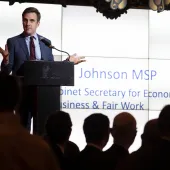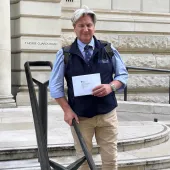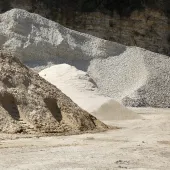BAA renews call for Aggregates Levy to be scrapped

Trade association says Government planning to extend Levy rather than admitting it is beyond repair
THE British Aggregates Association (BAA) has once again called on the Government to scrap the Aggregates Levy, saying that, as predicted, the Levy has fallen foul of European state aid law due to the fact that a number of exemptions granted to products, such as clay, slate and shale, cannot be justified by the nature and scheme of the Levy.
As previously reported, on 31 July 2013 the EU announced the opening of a Phase II investigation to formally decide whether or not the list of exemptions constitute illegal state aid. Under EU law any exemptions under investigation must be suspended for the duration.
According to the BAA, the opening of Phase II investigations – which are supposed to be completed within 18 months but are presently taking up to four years – left the UK government with two options: either to scrap the Levy altogether; or to suspend the exemptions.
The Association says the Government appears to have chosen to extend a hopelessly flawed and unaffordable Levy in an effort to appease the EU rather than admit that it is beyond repair.
At the time of writing, guidance on the timing for exemptions to be suspended had yet to be issued by HM Revenue & Customs (HMRC). It said the matter was currently being considered and that it might involve primary legislation. This delay, says the BAA, leaves those companies with exemptions in an extremely precarious position.
The Association warns that companies who have exemptions for clay, slate and shale will be expected to begin paying the £2.00 levy with little or no lead-in time. In addition, if their exemption is proved to have been state aid during the EU Phase II investigation, they will be liable to repay the full amount plus compound interest dating back to 2002.
Northern Ireland quarries, whose derogation has already fallen foul of a state aid investigation, also face liability dating back to when the 80% derogation began. The implementation of the Levy was delayed in the Province and, as the law stands, this could also be added to final accounts.
The BAA, which has called on the Government to suspend the Levy altogether as an alternative to causing further damage to an already hard-pressed sector, says it appears that HMRC is instead determined to extend the scope of the Levy, in order to save face and avoid a possible claim from those who have been paying it.
The Association contends that the Aggregates Levy has only ever had negative effects, distorting competition in the industry and inflicting enormous damage since its introduction in 2002. It says that although the alleged intention was to promote the environment, the Government has had to admit that the Levy is inherently incapable of achieving its environmental objective of promoting the use of by-products in an even-handed manner.
The solution that the Government now proposes, says the BAA, is to remove the environmental component of the Levy and simply tax all extracted aggregate. But since it will effectively have to do this retroactively, this will inflict significant further damage on the industry, albeit a different part of it.
British Aggregates Association director Robert Durward said: ‘At long last the Aggregates Levy saga is reaching the climax of an 11-year legal battle by the BAA. However, given the nature of cash-strapped governments, it is vital that the entire quarry industry, and not just the BAA, now makes a public call for the Levy to be scrapped forthwith, before it is allowed to damage the clay, slate and shale sectors as well.’









